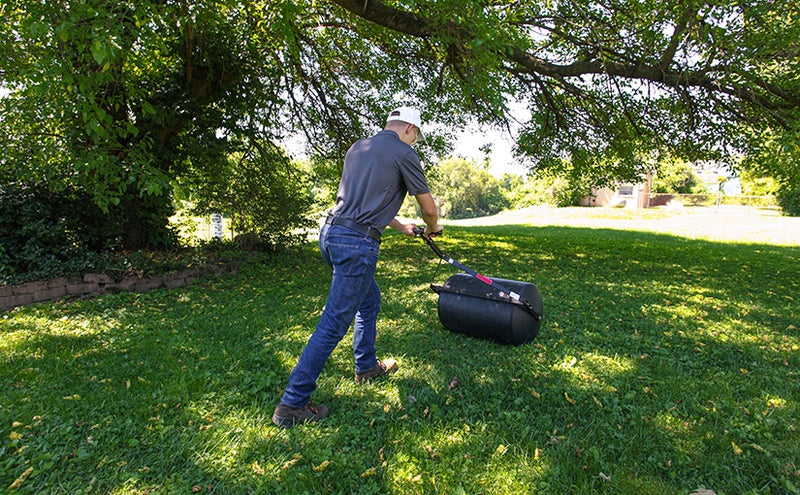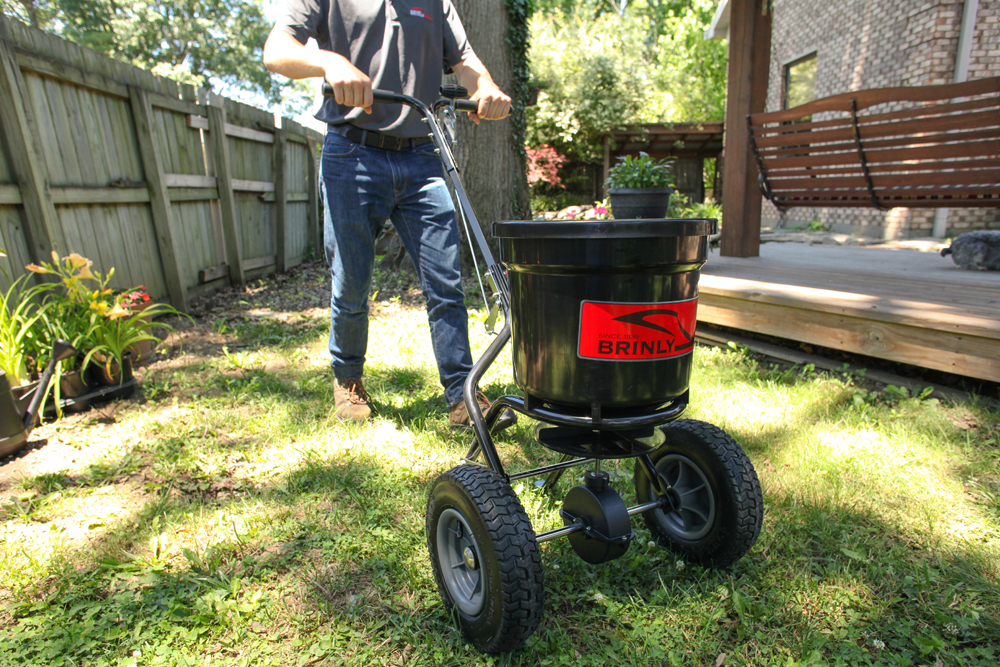
Fall is slowly moving toward winter; which means you’re almost done with your lawn and garden chores... Just don't forget about the final steps of pre-winter lawn treatment.
Before you put away your spreader for the season, your lawn needs one more shot of fertilizer if you live in the North. If you live in the South, your yard needs one more round of weed control to keep winter weeds from popping up.
Brinly-Hardy Has the Lawn Equipment to Help You Get Your Fall Lawn Care Done Right
Brinly-Hardy has push and tow spreaders as well as rollers to help you apply winterizer or weed control to your lawn:
Cool-Season Lawns
If you live in the northern half of the U.S. and your lawn is made up of Kentucky blue, perennial ryegrass and fescues, you have a cool-season lawn. And cool-season lawns benefit from a winterizer fertilization treatment before the ground freezes. Winter fertilizer, also known as winterizer, contains more potassium (potash or K) compared to spring fertilizer. Potassium helps your lawn with photosynthesis (when the green pigment, water, starches, and carbohydrates in the grass plant change into food with the help of sunlight). You want photosynthesis to continue in your turfgrass for as long as possible. And photosynthesis will occur if the sun is shining and there is no snow covering your lawn. Read more: 10 Fall Yard Cleanup Chores to Do Before Winter. Potassium also helps your turfgrass develop deep root systems—which are essential to your lawn’s survival over winter. Plus, potassium helps your lawn grass to:- Better tolerate drought and heat stress during the summer.
- Hardens off the grass plant before winter. Hardening means that the plant cells release moisture, so the plant cells don’t burst in freezing temperatures leading to winter injury.
- Become more disease-resistant.
Don’t Use Winterizer If You Have a Warm-Season Lawn
If your lawn is made up of Bermuda, centipede, St. Augustine or zoysia grass, you shouldn’t put down any winterizer because your turfgrass is entering dormancy. Warm-season grasses need fertilization in the spring and summer because they’re actively growing. However, in the fall they’re not growing anymore, and fertilizer will signal to your turf to start growing again. However, your warm-season lawn will benefit from winter weed control applications designed to form a blockade in the soil so winter weeds, like poa annua and henbit, don’t take residence in your winter lawn.Brinly-Hardy Has the Lawn Equipment to Help You Get Your Fall Lawn Care Done Right
Brinly-Hardy has push and tow spreaders as well as rollers to help you apply winterizer or weed control to your lawn:
- Our push spreaders are perfect for laying down product if you have a smaller yard. You have two choices between the 50 lb. spreader and the 50 lb. spreader with deflector kit.
- Our tow-behind spreaders come in two weight capacities: Our 125 lb. tow-behind spreader and our 175 lb. tow-behind spreader designed to broadcast product depending on the size of your yard.
- Our lawn rollers push down the fertilizer or weed control deep into the ground. Once you water your fertilizer or weed control, it’ll be in the soil to give you better coverage. We have four sizes of lawn rollers to fit your needs:
